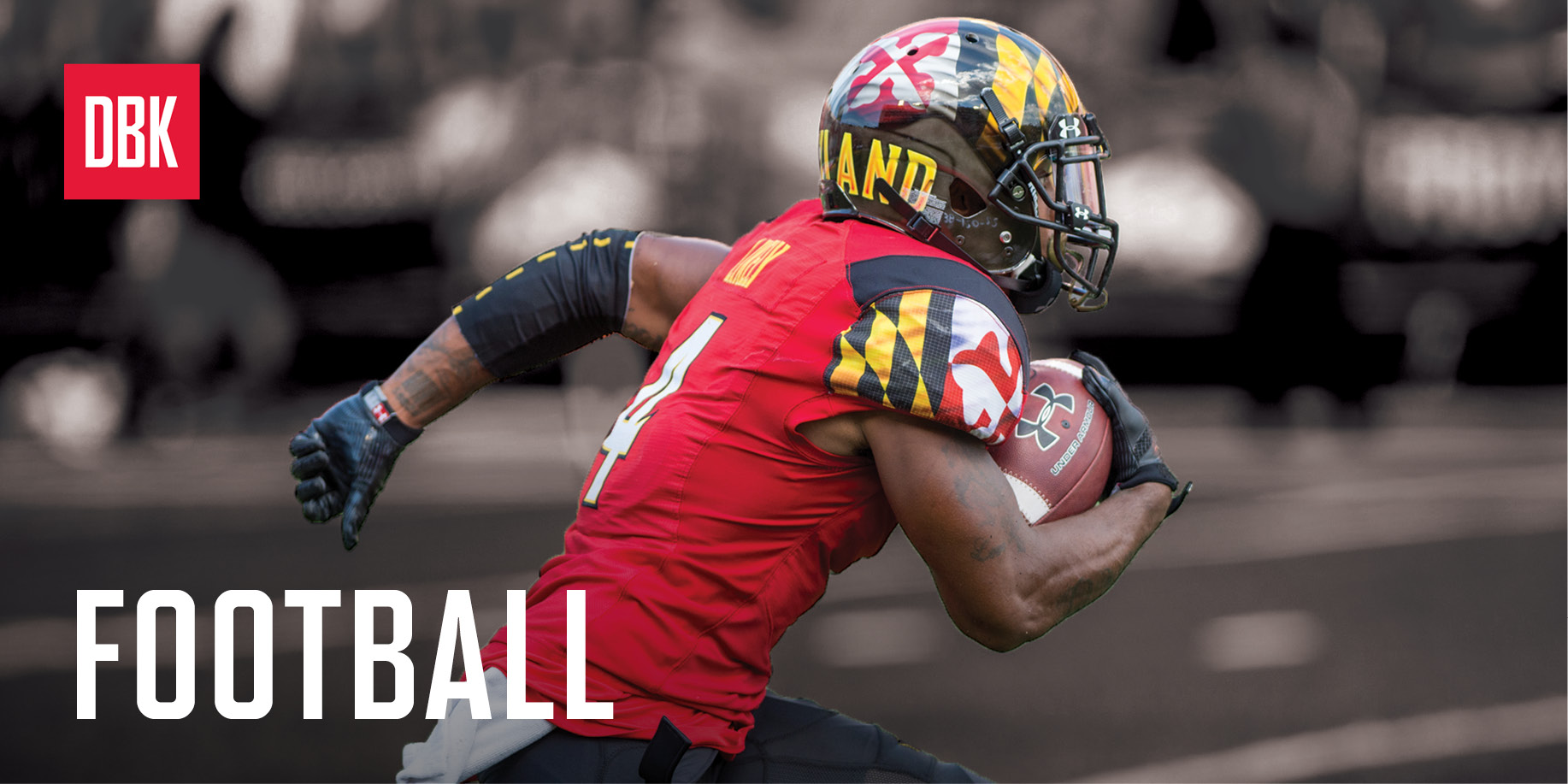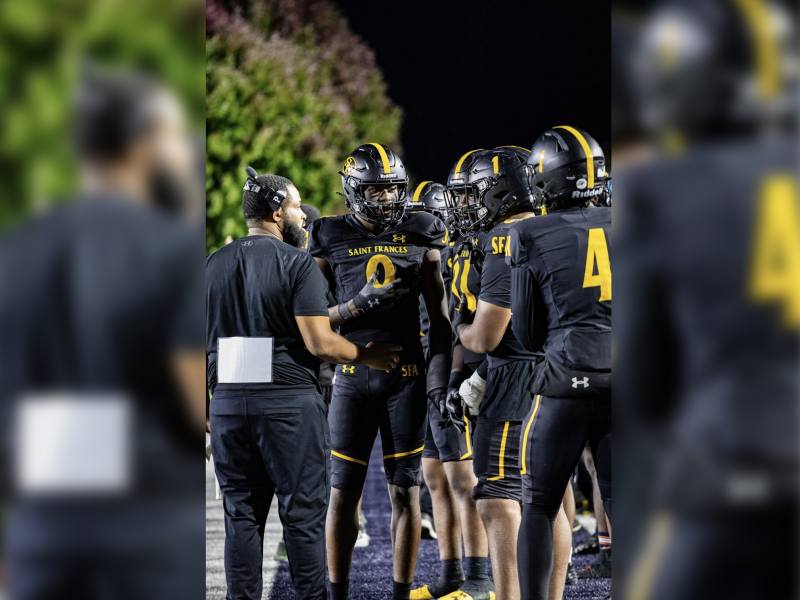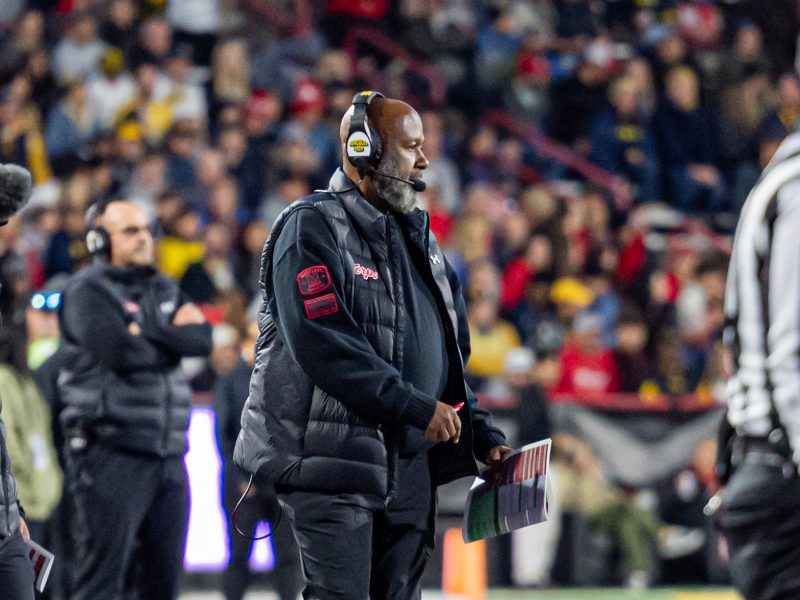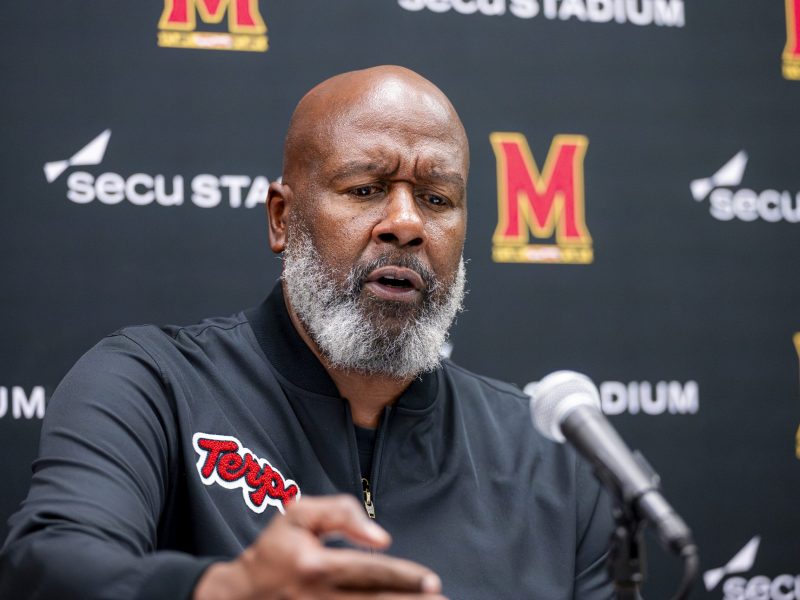Maryland football coach DJ Durkin needed to make a decision.
His defense, on a humid night Saturday in Orlando, had just surrendered a touchdown in the first overtime period, allowing Central Florida to tie the game on its first try.
Entering the second extra possession with the choice of starting on offense or defense, Durkin considered allowing the defense a chance to recover. But the coach really wanted his offense to have the final possession, as it would know the points it needed to win.
When the first-year coach looked at his defenders along the sideline, he knew what to do.
“They were locked in,” Durkin said. “Ready to go.”
The decision worked in the Terps’ favor, as the defense forced a turnover on the Knights’ 91st snap of the game to flip possession for quarterback Tyrrell Pigrome’s streak into the end zone. Durkin was pleased to see his players’ grit in the up-tempo contest.
“Coach always tells everybody to stick together, tight as a fist,” linebacker Shane Cockerille said. “When we do that, we come out on top. We were prepared for adverse situations like this, and we showed what we had to do.”
After the game and again on his weekly conference call Monday, Durkin complimented his defense’s performance. He said the secondary limited the Knights’ long gains while sticking to its man-to-man assignments.
Durkin conceded, though, the Terps’ had difficulty containing UCF quarterback McKenzie Milton, which led to some broken coverages. The Knights converted about 30 percent of their third downs and went 3-for-5 on fourth-down tries.
During the team’s bye week before the Big Ten opener Oct. 1, the Terps plan to emphasize using their front seven to contain opposing mobile quarterbacks. That way, they’d be able to limit scrambling plays like the ones Milton rattled off in Bright House Networks Stadium.
“It’s hard to defend down the field when plays last eight, nine, 10 seconds,” Durkin said. “That’s a long time.”
“We had the right calls,” defensive back Will Likely added, “but some way he was able to just get out and just make plays.”
To keep the players rested in offensive coordinator Walt Bell’s quick-strike offense, the Terps used a rotation of players. Of the game’s 33 combined drives, two lasted longer than four minutes.
That cycle led to seven Maryland players carrying the ball. Rookie running back Lorenzo Harrison paced the group with 77 yards and one touchdown on 15 attempts.
Wide receiver Teldrick Morgan, meanwhile, led the Terps’ six pass-catchers with two receptions for 64 yards, including a 51-yard bomb from quarterback Perry Hills to set up kicker Adam Greene’s field goal at the end of the first half.
The offensive line turned to some of its reserves, too.
Throughout the game as the Terps struggled to generate a consistent attack — they finished the first quarter with 27 total yards — Durkin switched the lineup in the trenches.
With less than nine minutes left in regulation, offensive lineman Derwin Gray took the field with the unit. He lined up at left tackle, while left tackle Michael Dunn moved to right tackle — a formation the Terps turned to multiple times Saturday night.
Dunn moved back to the left side and right tackle. Damian Prince returned later in the drive when the Terps faced 3rd-and-1, and Gray made an appearance a few plays later with the Terps facing 3rd-and-8.
Durkin said the players’ development and competition for playing time has prompted the shuffle along the line this season, and he wanted the younger Terps to gain experience in a close game on the road.
The coach, remembering the looks on his players’ faces late in the game, called the victory a “program-builder.”
“There were so many times in that game they had to dig deep,” Durkin said. “The offense had to pick up the defense, and the defense had to pick up the offense and special teams and everything.”



